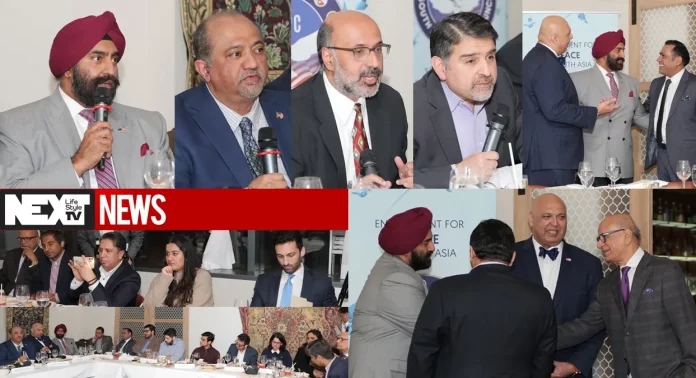In Washington, DC, South Asia Peace Council members discussed the recent uptick in terrorist activity in Pakistan during a roundtable discussion. Why is Pakistan experiencing an increase in terrorist attacks despite the country’s significant efforts and losses in the war against terrorism? This conversation included representatives of the academic community, professional community members, and the think tank community in Washington, DC. Dr. Qamar Cheema, who was serving as the event’s moderator, gave a speech in which he discussed the power balance impasse in Pakistan and why the political class does not accept responsibility for problems with national security.

In his opening remarks, the South Asia Peace Council Chairman, Sajid Tarar, emphasized the necessity of conversation among Pakistan’s various stakeholders to achieve stability, peace, and resilience. Militants responsible for the deaths of thousands of innocent Pakistanis should not be tolerated in Pakistan. He pleaded with the United States government to support Pakistan in its war against terrorism and offer all assistance that Pakistan requires. There have been highs and lows in relations between Pakistan and the United States, but the United States always considers Pakistan a reliable ally. This has made Pakistan and the United States formidable partners.

Three individuals were asked for their professional opinions on the causes of the recent uptick in terrorist activity in Pakistan.

Professor Dr. Hassan Abbas discussed the backdrop and historical context of growing terrorism from the National Defense University in Washington, DC. He claimed that kinetic actions alone are not enough to combat terrorism; instead, Pakistan should have undertaken major de-radicalization strategies for the general people to deradicalize masses of Gen. Zial ul Huq’s radicalization of a nation.

According to Dr. Kamran Bokhari of the New Lines Institute in Washington, DC, there is no such thing as a good Taliban or a bad Taliban. There are none other than Evil Taliban, and Pakistan ought not to support a regime that it does not approve of for itself. The Afghan Taliban will be encouraged by Pakistan to embrace a more progressive, inclusive, and participatory form of government in Afghanistan.

Dr. Muqtedar Khan from the University of Delaware spoke on the regional context of terrorism and how India perceives this new wave of terrorism in Pakistan. He also discussed the similarities and differences between the two countries. He expressed the view that Pakistan needs to make sure of course adjustments and to do so, more significant behavioral shifts are required from all relevant players.

During his closing remarks, the President of the SAPC, Sardar Jasdip Singh Jesse, expressed his gratitude to the attendees for their intellectual and academic contributions to the discussion on the resurgence of terrorist activity in Pakistan. He thanked the attendees for their participation in the event.
